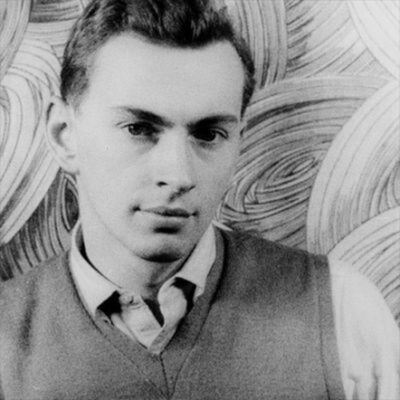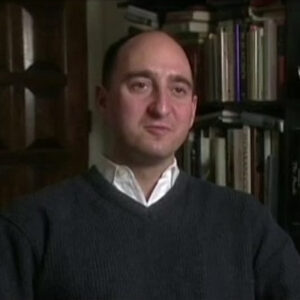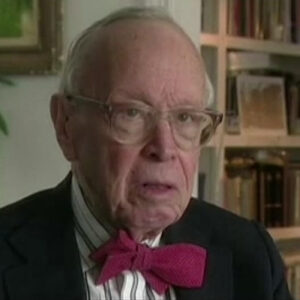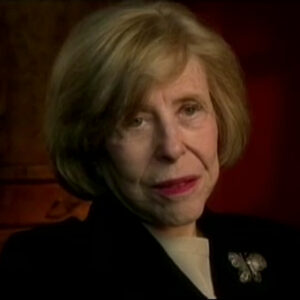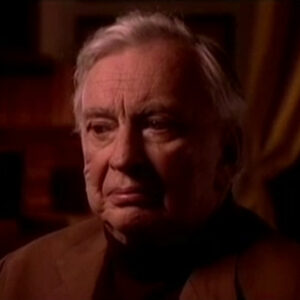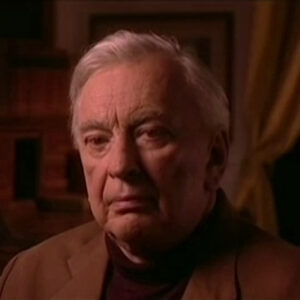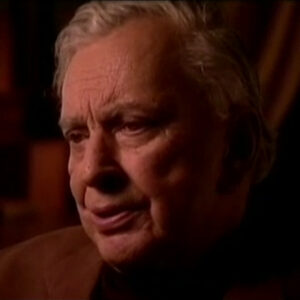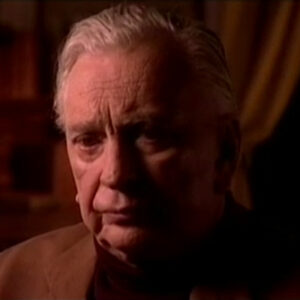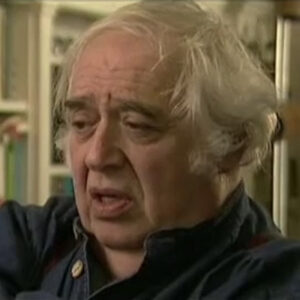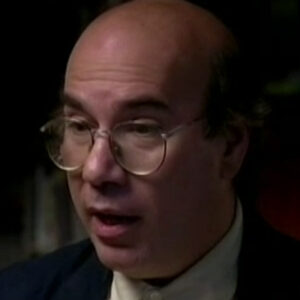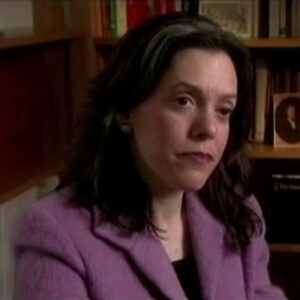Speaker I was going to tell you whenever I I recently did a film which I was interviewing 16 people from various kinds of artists talking about the 20th century’s most influences, one of the sort of Millennium Films. And I always tell people like my. Associate producers check if there’s an interview in the Paris Review or in The New Yorker profile.
Speaker That’s what I mean. Yes, that’s true. As you look up Gore’s in the review, I wish he’d been funnier. He’s been to Solomon. It wasn’t as though we had a lot of trouble. I kept getting angry with him and say, come on, go. I like to talk about writing.
Speaker Know we like to talk about politics and the subject. Yeah, I want to talk about the craft very much. Yeah, I’m getting it.
Speaker Yeah, well, he’s very, very eager to be interviewed. Yeah. You wanted to get into that pantheon. Exactly. That’s a good place to be. All right.
Speaker So let’s start by and I need you to respond. My questions were not being used.
Speaker I mean, I’m sure you want to talk to the camera. To you. To me. Yeah. When did you first meet Corbino?
Speaker I first met Gore at school. We both went to Phillips Exeter Academy in New Hampshire.
Speaker He was a couple of classes ahead of me, quite a star there. He was the editor of the literary magazine. And I remember that he had stories, of course, were always in the magazine. But I remember once he sent in a story under another name to see what the editors would say about his story.
Speaker And of course, it was very good. And the editor sat there and said, what an extraordinary story he’d written by some prep, you know, somebody who’s only 12. How remarkable. And, of course, at the end just gloried in all this praise from his fellow editors. Then I suppose he let the beans out and inform him that he indeed had written it himself.
Speaker I don’t remember him very well, he I got lost in the woods up there once, lost four hours and I came out when I got out, which is rather lucky. I just happened to stumble onto a road.
Speaker I wrote about this, as one does at the age of 13 and a long epic poem. And Gore Vidal, being the editor of the surgery paper at Exeter, saw it. And although it wasn’t published in the magazine, he said more or less to me, you must write.
Speaker And very often I think at school you get that from one of your peers. Although he was older, that marks the beginning of something. And although I’ve never told Gore this to his face, I think in a way he had something to do with my becoming a writer.
Speaker He gave me that little push, which was more than anybody else did at Exeter, I might add, including my English teachers. But he saw something and announce it as such.
Speaker Did did did you ever hear him debate you, the debate?
Speaker I never had Gore debated Exeter, but he was the head of one of the debating societies and it was talked about. I never went to hear him debate, but he was awfully skillful at it. I know from the very beginning, and I believe was the president and one of the debating societies, which meant that you had to get up and and speak off the cuff. It meant you had to have a quick, sharp mind about you.
Speaker I tried out one of the debating societies and by mistake quoted a poem which I didn’t know was obscene.
Speaker It was all about unions and whether underage people should work in the unions, it was during the war and I think the point was something along when roses are red and ready for plucking the girls at 16, they’re ready for working. And I didn’t know. And I was thrown out of the society and very nearly out of the school.
Speaker Well, I gather that.
Speaker When Gore did that, he was a big American first. And debating and head of the American Society of.
Speaker All right, so then when did you next encounter core? I must have seen go around New York at that time in the 50s. I went to Cambridge University and then went to Paris so I wasn’t around very much.
Speaker But when I came back, I used to see him during the Kennedy administration because he was a great friend of Jackie Onassis then, of course, married to the president and he had written a play, The Best Man, which the president had liked and come to in New York, I believe. So he was rather a star here. And so I must have seen him around at various parties and so forth. We were not close friends, but I certainly always went up and thanked him for making me a writer.
Speaker And I saw him, of course, at the one of the more famous incidents in his life.
Speaker I was at the White House when Gore had a sort of an altercation with the family. And I always thought I had something to do with his going to Europe because I think he loved being near the seat of power and relished his friendship with those people. And then on this one night in the White House, the White House, the Kennedys had these really quite marvelous private parties. They invited their friends and there was dancing and there was usually very funny dinners and toasts and speeches. I remember at one of them president, there were toasts and Oleg Cassini addressed as I got up and gave a long toast to whom he thought was Prince Radziwill.
Speaker You know, I’ve got it wrong. It was Franklin Roosevelt Jr. got up and gave a long toast. Each one may start this again.
Speaker It’s not very interesting, but I’ll do it again if you are typically the Kennedys go to these great private dances maybe once a year to a year to which they invited their friends, a very few political figures, but just their friends from New York and Washington.
Speaker Social occasions, really. And Gore.
Speaker I was at one of these and he got into some sort of an altercation with Bobby Kennedy. There are many stories. His own is probably the one that’s the correct one. I was I always remember him standing there and watching him put his arm around, go put his arm around Jackie, and she was wearing one of those Japanese dresses with a OBE in the back. And and Bobby Kennedy saw this and didn’t like it and sort of wrenched his arm away and was he was a little bit ugly there. There was that sort of shouldn’t do that to me. I’m a writer, know that sort of thing. No. You know, and then I know he had a very ferocious argument with the boy in Billings who was a sort of a Kennedy hanger on. And that was vicious, apparently. And Billings was awfully close to the Kennedys.
Speaker He was sort of a how describe him. He was sort of a great uncle to them all and.
Speaker And that, I think, got back to the Kennedys, and so that was sort of the end of Gore’s reign at the at the White House.
Speaker Why do you think Bobby Kennedy disliked for so much? He’s quoted as saying that Gore was one of the two people in the world along with.
Speaker I never knew that.
Speaker I don’t know why Bobby Kennedy, if he did dislike Gore that much. I think Gore was a was the sort of person that might aggravate Bobby. He was so glib, so good with words which Bobby was not. His political agenda wasn’t at all with Bobby was he had a charm, which Bobby did not have, except in a very different way. That’s rubbed him the wrong way, the way some people rub you the wrong way that he disliked his confidence with around the White House, with Jackie and so forth. He’s one of those that was one of those dislikes that sort of ingenues itself.
Speaker And then finally, there was cause at the White House at one of these dances, there were.
Speaker Bob, he felt that Gore was being too familiar with Jackie and said as much, and that sort of escalated. There were other episodes that took place. But it was too bad, I mean, there were is what happens when two very strong characters brush against each other and sometimes are sparks and sometimes they’re not. In this particular case, that was box.
Speaker There have been other famous feuds with.
Speaker Do you think that Gore courts controversy?
Speaker Yeah, yeah, I think does court controversy, he says very controversial things, he writes very controversial books. You read about Abraham Lincoln and you wonder why Abraham Lincoln is the great man we all thought he was, God, for whatever reason seems to take a perverse view of a great many icons is if wait a minute, let’s take a look at this more carefully. And he does an awful lot of research and terribly bright. And I think he likes to use that that machinery to bowl over things very often.
Speaker I remember we were once on a radio program together at HGH or something in Boston, and Gore had just written is very controversial book on Aaron Burr. And I just written a book about football called Mad Ducks and Bears. And we went onto this program and we look a little bit alike and we talk a little bit alike. And so Gore suddenly said, hey, I’m bored with all this business.
Speaker Why don’t I talk about football and you talk about Aaron Burr and we’ll see if we can fool anybody. And I said, well, go wait a minute here. He said, let’s try it about three minutes away from he said, I’ll go first. And whoever was the moderator of the radio program thought this was very funny. And Gore started off, you know, my name is George Plimpton. I have written this book about football called Mad Ducks and and Bears.
Speaker And he then began to talk about football in a way that I suddenly realized it was going to destroy any sales of that book, conceivably. So in order to save my own book, I should have played along with it and had his say and then launched into Aaron Burr, which I would have been very ill equipped to do. But I could have thought of something, I think, to destroy it. And since right in the middle of this, I think we were both being quite destructive. On the other, we stopped this rather wonderful idea of talking about each other’s books as if we were the author.
Speaker Certainly he has his admirers and his detractors. How would you describe his literary reputation or his literary?
Speaker Well, I think he’s one of the authors we have in this country whom you have to read, you know, very often you finish reading what you’ve read and you throw it into the full, full speed towards the nearest fireplace and anger. But it’s always interesting, always has a curious very Bedazzler slant to it is always very intelligent. It may be misinformed. It may be. That is to say, if you think you know a bit more on the subject than he does or you think that maybe he’s just going off on the wrong track, or you think that to be Gore, he’s taken an impossible track and you recognize it. But there are a number of sort of little bits of detective work that you that you can do before you get going, which I remember the last article I read of his, I think it was at Esquire in which I really thought he’d gone off the track.
Speaker In fact, to such a degree, I can’t remember what the article was about McVeigh or about McVeigh.
Speaker And occasionally, I think he just goes off the track.
Speaker He wrote recently about McVeigh, the Oklahoma bomber, with whom he’d had a long correspondence, which was interesting, that correspondence was interesting enough.
Speaker But I think that what God drew from the correspondence was way off the mark.
Speaker It doesn’t make any difference somehow. It’s always very interesting to see a very clever mind at work. And when you see Gore Vidal, whatever it is, is a book or an article or a review, that’s something you’ve got to read, even if you do throw it across the floor. What makes you think, yeah. Hee hee hee.
Speaker I don’t think he’s ever reached the sort of canonical that’s us, that word status that he feels he deserves, he complained once to tell them about that and said Harold Bloom, that that he thought that his forthrightness about sexual orientation had caused his work, the status it deserved. Blum replied that he thought it was because he was writing the historical fiction genre, which is kind of. Always shunted aside, some of other people think it has to do with his political views, but.
Speaker Well, I’ve heard Gore state that it’s because of your sexual orientation, that he’s not quite achieved the. Position, he thinks he ought to have an American letters. I’ve also had Harold Bloom say that just because he writes historical novels and that’s not the job that you want to establish a reputation in and.
Speaker I said, I don’t think the sexual orientation is part of it, that would cancel out an awful lot of writers who have reached that stature. It may well be that a bloom is right about the historical novels is hard to think of, of writers who have written historical. I’m not talking about people who have written novels in which history is very much a part, but the true historical novel about Lincoln or about Burma or about Jefferson or whatever. The temptation of the academics, of course, is to go well, go and write a simply straightforward history of these people. The temptation is too much to to add your own interpretation in terms of the novel, not in terms of fact, but in terms of fictional characters. And once you begin doing that, you drift away from.
Speaker You drift into what the academics would think of, as you know, the romantic novel, historical novel has a connotation which isn’t what you would hope for.
Speaker What was the third thing that you covered and did? But, of course, romantic is probably the last adjective.
Speaker Yeah. Oh, absolutely. But the general reja, the romantic novelist. What do you think he will be remembered?
Speaker For his novels, his essays. I think Gore’s rather lovely position to be remembered for also he got a wonderful name to begin with who now has had to pick a name, Gore Vidal. Wow.
Speaker So he starts off with that. He’s written wonderful essays. He’s written good novels and good historical novels. And he’s got a man of considerable wit, which is very much tempered by his anger about everything, which was always helpful.
Speaker So he’s certainly got the groundwork to be.
Speaker But I think if you have to look back on all the novelists of the 50s and 60s and 70s, certainly, then you always spoke of Truman Capote and William Styron and Norman Mailer and Gore Vidal and a pretty impressive quartet and probably miss somebody. And I guess you put Kurt Vonnegut in there and you put John Updike in there, of course.
Speaker But that’s a formidable group. And Gore seems very much one of them. And I think we’ll continue to be.
Speaker I think the I’m trying to think which which one would go back to first in the year 2050. I suppose you go back to the six essays tend to be rather topical. Usually you probably go back to the novels, you probably go back to burn to get a sense of what those times were like, seen through the eyes of a rather remarkable writer.
Speaker How would what separates him from his contemporaries? Think he’s. Unique in some way compared to the other writers that came came and emerged after the second.
Speaker Well, I think his approach was rather different than any of the others. First of all, he cast his net awfully wide.
Speaker Or the more like Maila, in a way, who was a great many subjects that he tackles everything from boxing and he’s very politically engaged or as you don’t see very much of that go on Gorgie property and in Updyke or or Jones, James Jones or any of the others.
Speaker But in fact, of all of them, surely the one most interested in politics was Gore Vidal, because he comes from a political family in Tennessee.
Speaker He learned everything he knows about politics and the his great uncle’s knee read to him when he was blind. So for all of that, he’s imbued with it and.
Speaker And then oddly, of course, he lives in Italy, most of the time in Italy, and I guess if you live there, you get a very interesting perspective about your country. You sort of sit apart from it and you can some people think it’s very dangerous to live outside your country and talk about your country because you don’t you know, you’re getting it all through a sort of a sieve. You not really part of it, but perhaps he has a he has a bit of you being there. And Ravello, he’s very much politically involved, has been around for Congress.
Speaker At one point, one of his best friends, one of his best cameo roles was a I believe, a senator and a film. He was terrific. I would have voted for him. And a shot.
Speaker That’s the main difference is, is that he’s far more politically concerned and than any of his peers. And that’s because, of course, he has a whole background in politics, likes politics, likes power, likes to write about powerful people imbued with it and independent.
Speaker You know, the great thing to belong to in this country is the Academy of Arts and Letters. And Gore was elected to it. But being as independent as he is, he wrote back a letter saying that he very much honored by being asked to join the Academy of Arts and that but he already belong to the Diner’s Club and that was enough for him.
Speaker You, since I might add, has joined the Academy of Arts and Letters. So he didn’t stick to that principle of independence for too long. The. Someone I spoke to.
Speaker Described Gore as a 20th century, 21st century Marquitos publication was everything.
Speaker I think this is fair. I don’t know, I can’t answer that question. Forgive me. I don’t know how many times they don’t know that much about the marquis market decide in terms of other than he’s thought of. Do you have a favorite?
Speaker I don’t think not one that some of the others. So. In terms of his.
Speaker You were saying before about. If if he takes it on the subject, for instance, of Lincoln, such an icon or of the founding fathers, his view of Jefferson and Aaron Burr is quite. And I think it angers me. They don’t like it and tend to think that he’s got it all wrong. Do you think he does have it wrong or.
Speaker Or do you think he just goes way out on a limb and. Was willing to do that or maybe even compelled to do the. Well, I’m not an historian, so it’s very difficult for me to go up, to go out and say, hey, wait a minute, you just got that wrong.
Speaker But from people I’ve talked to and from the little I do know about some of the historical people that he’s written about, he he does have it wrong. I mean, there’s so many ways that you can look at a great figure like Lincoln. There’s no doubt that Lincoln had no idea what to do about the slave situation. At one point, he wanted to send them back to Africa. I know my great great grandfather, Benjamin Butler, was called in by the president. And Mr. Butler said, I have a suggestion for you, Mr. President, there are 300000 slaves, we should send 150000 of them to the Isthmus of Panama to farm and the other 150000 to build a canal between the Atlantic and the Pacific Ocean.
Speaker And Lincoln is said to have replied to Butler. His favorite expression was, and there’s a lot of meat on that, sir, and that he is supposed to have said to General Butler Butler. A lot of meat on that, sir. Well, now you can take that story, which is true.
Speaker And you could infer by that that that’s Lincoln’s main idea, was to send everybody down to the malaria infested isthmus of Panama, have them do that. So it depends upon how you use that and how you interpret that to move your main character. Gore, I think, be a very careful researcher, blacks on things like that and uses them to move his character in a way that may not necessarily be the way he did, in fact, move. I’m just used as an example and that he tends very often, I suspect, to pick the most sensational, iconoclastic, more of that sort and go to town with it. And he goes to town with it wonderfully well. But you tend, I think, to get it rather.
Speaker Often a rather particularize portrait that is not accurate.
Speaker Well, I think also I think if you start off writing a biography, the there must be two temptations. One is to say something about this character no one’s ever said before or no one’s concentrated on. So therefore, it becomes and becomes the subject of controversy and discussion. And particularly when you write fiction, you can bolster your point of view because you’re a fiction writer. Gore would deny this, of course, but I think you can do that’s the trap you fall into. And I think if you do that, you can have you know, you have to have, as I say, more sales and more people writing angry notes and controversy and so forth. You know, you know, to meet Gore is always to be on your toes. He always has something he remembers or some comment to make. Very often it’s it’s not all that comfortable because he’s, you know, he loves that sort of thing with you. So it’s like a game. And he loves to play the game and he’s awfully good at it.
Speaker And it can be discomforting.
Speaker And I mean, I like him very much. He’s always been a good friend to me.
Speaker I always have visited him in Ravello. Was it Rapallo Ravello and enjoyed his hospitality. But there’s always there’s always a a like a kind of contest going on with him.
Speaker I always lose. I mean, I’m not.
Speaker But but it’s it’s good. It’s good. It’s a good exercise of the brain. It’s his idea about getting along with people and with his books.
Speaker Exercise it.
Speaker Gore talks about, you know, I think he’s talking more about the early 50s or the New York in the 50s as being this. Absolutely. There’s this like an explosion in the arts. Place it was to be.
Speaker I will be very helpful there. I’ll try, I won’t be very helpful. I just wasn’t around. No, I was I was in Paris 53, 54, 55, came back here and taught in 56.
Speaker And Gore right after the Kennedy fractures, which is what year? I’m not sure I know he went I know he left in 64, 64 after that last.
Speaker At parties, houses, but.
Speaker They just have no concrete. It wasn’t really Gaus, let me see the Raiders around. Of course there was. There was Norman and there was Truman. I don’t think Bill Stone and Gore got along, particularly, I don’t know. James Jones had very little to do with him. Yeah, there were the famous debates that Gore got involved, which I’m sure you have all the footage I and you talk about those. But could that his argument with Truman Capote.
Speaker I didn’t see the I remember one one one fracks, was it Lally Weymouth House?
Speaker Lally Weymouth had this party for. I was sitting there in a chair, I forgot what his great triumph was, but he was being lionized.
Speaker And Norman Mailer arrived.
Speaker And I can’t remember what the reason for, you know, remember the reason, the reason for it.
Speaker Well, well, so I can be had he already written the piece about Norman, you know, after Norman had written about women’s liberation and was so disparaging, and then Gore wrote a piece likening him to Henry Miller and Manson and Mailer, Mailer really put out that that may have I so we have a clip from them on The Dick Cavett Show remembers very. Yeah. I think the incident you’re talking about came after that, but I’m not positive.
Speaker You just tell us. I just I do the best I can.
Speaker Yeah.
Speaker I do remember a party at Lally Weymouth where there was a fractious Gore was there sitting in an armchair, I remember, and he was being lionized, he’d done something quite marvelous. I can’t remember what it was one of his books or an article, or maybe he was just being lionized. And he was quite a gathering and a lot of get in in the middle of it, Norman appeared and I can’t remember what the the cause of his alarm was, the cause of his of his what it causes eminently between the two of them. At any rate, there was a sort of a shouting match and Norman punched him.
Speaker And a little scuffle out of Melbourne and Lally Weymouth evicted Norman and Gore sat there in the chair. I guess he’d been popped in the eye. He always used to refer to which I thought was typical of Norman, typical of Gore. He referred to it as the night of the tiny fist. So he was not badly damaged. But I do remember that the visit occurred the night of the tiny fist.

